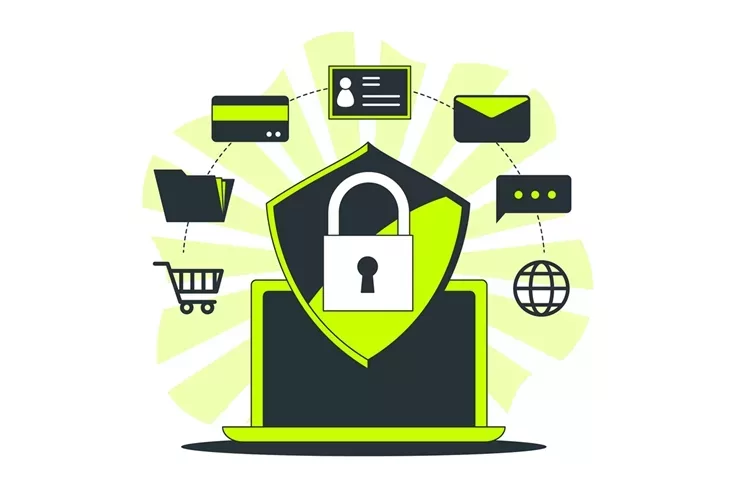Introduction
Email is a cornerstone of communication and transactions in the modern business landscape. However, this convenience is accompanied by the looming threat of email-related cyber risks, which can severely impact a company’s financial stability. This article delves into the critical domain of email security, exploring its pivotal role in safeguarding business finances. From unauthorized access to phishing attacks, we dissect the potential risks. Moreover, we provide actionable insights into bolstering defences through employee training, advanced technology, and best practices. Discover how real check stubs serve as allies in this battle, ensuring the integrity of financial communications. Join us in navigating the dynamic terrain of email security and its indispensable significance for businesses.
Importance of Email Security for Businesses
Email is a gateway for exchanging information between an organization and external stakeholders. Ensuring the security of these communications is paramount because compromised emails can lead to significant financial repercussions.
Risks to Business Finances
Businesses face numerous risks related to email security that can directly impact their finances. Among the most prominent threats are unauthorized access and phishing attacks.
Unauthorized Access and Phishing Attacks
Unauthorized access to email accounts can result in unauthorized fund transfers, manipulation of financial information, and even identity theft. Phishing attacks often involve luring employees into revealing sensitive data and can lead to fraudulent transactions and monetary losses.
Data Breaches and Financial Losses
Data breaches that expose sensitive financial information can cause severe damage to a company’s reputation and lead to legal consequences. Hackers often target email systems to gain access to financial data, which can then be exploited for financial gain.
Common Vulnerabilities in Email Security
Several vulnerabilities contribute to compromised email invulnerability, leaving businesses susceptible to attacks. These vulnerabilities include weak passwords, unsecured Wi-Fi connections, and lack of Encryption.
Weak Passwords and Multi-Factor Authentication
Weak passwords are an open invitation for cybercriminals to breach email accounts. Implementing strong password policies and multi-factor authentication significantly enhances security by adding an extra layer of verification.
Unsecured Wi-Fi Connections
Using unsecured Wi-Fi networks can expose email communications to interception by hackers. Employees should be educated about the risks of public Wi-Fi and encouraged to use secure connections when accessing emails.
Lack of Encryption
Encryption plays a pivotal role in securing the content of emails. Without Encryption, sensitive financial information becomes easily accessible to unauthorized parties.
Best Practices for Email Security
Mitigating email security risks requires implementing best practices encompassing various aspects of cybersecurity.
Implement Strong Password Policies
Enforcing complex password requirements and regular password changes can prevent unauthorized access to email accounts.
Educate Employees about Phishing
Training employees to identify and report phishing attempts can prevent them from falling victim to email-based scams.
Use Secure Wi-Fi Networks
Encouraging employees to use only secure, password-protected Wi-Fi networks helps shield email communications from potential eavesdropping.
Employ Encryption for Sensitive Data
Encrypting emails containing sensitive financial data ensures that the content remains unreadable to unauthorized parties even if intercepted.
Email Security Email Filtering and Antivirus Software
Implementing robust email filtering and utilizing up-to-date antivirus software is crucial to enhancing email security.
Importance of Email Filtering
Email filtering helps weed out suspicious emails, reducing the likelihood of employees interacting with phishing attempts.
Role of Antivirus Software
Antivirus software detects and eliminates malicious attachments or links that could compromise email security.
Email Security Regular Software Updates and Patches
Keeping email software up-to-date with the latest security patches is vital for addressing vulnerabilities that cybercriminals could exploit.
Data Backup and Recovery Plans
Regularly backing up email data and having comprehensive recovery plans can mitigate the impact of data breaches or email service disruptions.
Employee Training and Awareness
Educating employees about email security risks, protocols, and best practices empowers them to safeguard financial communications actively.
Secure Email Communication for Financial Transactions
Financial transactions conducted via Email require an extra layer of invulnerability to prevent unauthorized access and ensure the integrity of the process.
Importance of Secure Communication
Secure communication channels must be used to prevent interception when sensitive financial matters are discussed via Email.
Implementing Encryption for Financial Emails
Encrypting emails that contain financial data guarantees that only authorized recipients can access the information.
Email Security-Verifying Email Recipients
Before sharing financial information or conducting transactions via Email, verifying the recipient’s identity is essential to prevent fraudulent activities.
Conclusion
In the digital era, safeguarding business finances through robust email safety measures is not a choice but a necessity. The risks of compromised email accounts and sensitive financial information are too significant to ignore. By implementing strong security practices, educating employees, and utilizing tools like real check stubs, businesses can fortify their defences against email-based cyber threats and ensure the integrity of their financial transactions.
Read More:
Data Lakehouse vs. Data Lake: Choosing the Right Architecture for Your Big Data Needs
Deepfakes and the future of online safety



